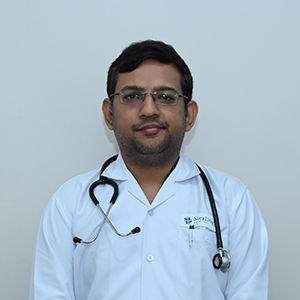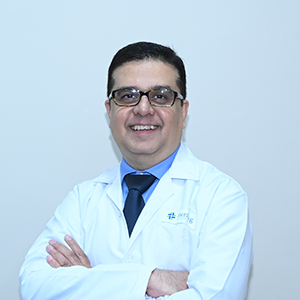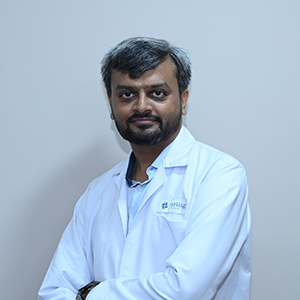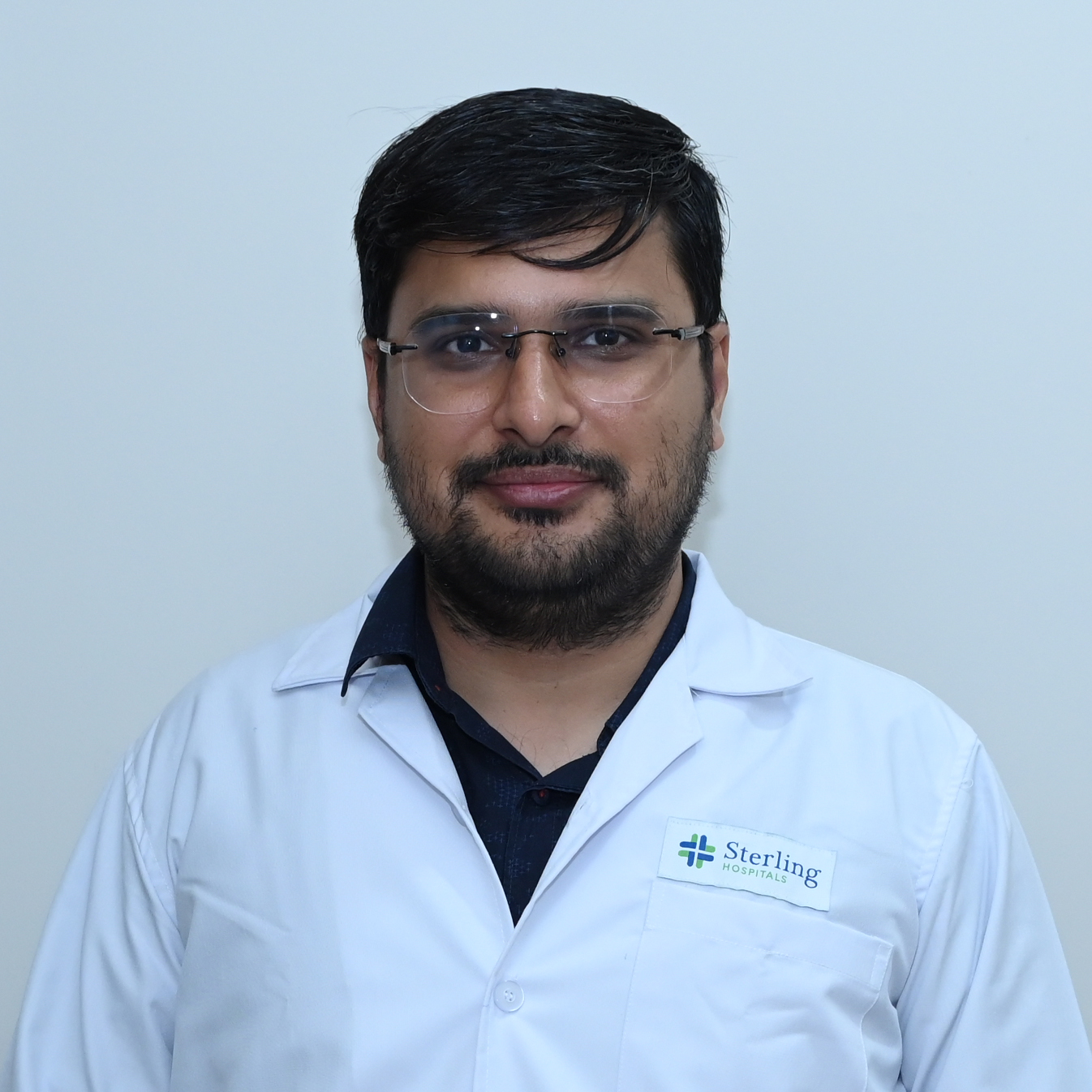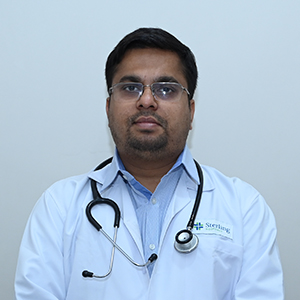Gastrointestinal oncology
Sterling Hospitals Rajkot, is a leading hospital in India that offers comprehensive care for gastrointestinal cancers. The hospital has a team of experienced oncologists who specialize in the diagnosis and treatment of these cancers with state-of-the-art technology and advance equipment.
Gastrointestinal oncology is a branch of medicine that deals with the diagnosis and treatment of cancers that affect the gastrointestinal tract. The gastrointestinal tract is a long tube that runs from the mouth to the anus and includes the esophagus, stomach, small intestine, large intestine, and rectum. The gastrointestinal tract is a long tube that runs from the mouth to the anus. It includes the esophagus, stomach, small intestine, large intestine, and rectum.
Following are the cancers that can affect the gastrointestinal tract :
-
Esophageal cancer: This cancer starts in the esophagus, the tube that carries food from the mouth to the stomach.
-
Gastric cancer: This cancer starts in the stomach.
-
Colorectal cancer: This cancer starts in the colon or rectum.
-
Pancreatic cancer: This cancer starts in the pancreas, an organ that produces enzymes that help to digest food.
-
Hepatocellular carcinoma: This cancer starts in the liver.
Symptoms of gastrointestinal cancers
The symptoms of gastrointestinal cancers can vary depending on the type of cancer and the stage of the disease. Some common symptoms include:
-
Bleeding: This can occur in the stool, vomit, or urine.
-
Weight loss: Unexplained weight loss is a sign of cancer.
-
Abdominal pain: This can be sharp or dull.
-
Nausea and vomiting: These symptoms may occur, especially after eating.
-
Change in bowel habits: This can include diarrhoea, constipation, or narrowing of the stool.
If you have any of the symptoms of gastrointestinal cancer, it is important to see a doctor right away. Early diagnosis and treatment are important to prevent complications.
Treatment for gastrointestinal cancers
The treatment for gastrointestinal cancers depends on the type of cancer and the stage of the disease. Some common treatments include:
-
Surgery: Surgery is the most common treatment for gastrointestinal cancers.
-
Radiation therapy: Radiation therapy is used to kill cancer cells.
-
Chemotherapy: Chemotherapy uses drugs to kill cancer cells or prevent them from growing and dividing. It may be used alone or in combination with other treatments, such as surgery or radiation therapy.
-
Immunotherapy: Immunotherapy helps the body's immune system to fight cancer. It may include monoclonal antibodies, checkpoint inhibitors, or CAR T-cell therapy.
-
Targeted therapy: Targeted therapy uses drugs that target specific molecules or proteins in cancer cells to stop their growth and spread.
Chemotherapy
Chemotherapy is a cancer treatment that uses drugs to kill or slow down the growth of cancer cells.
Here are some of the types of chemotherapy:
-
Neoadjuvant chemotherapy: This type of chemotherapy is given before surgery or radiation therapy. It is recommended when the tumor is too large to be removed surgically, or the location of the tumor makes it difficult to operate. Neoadjuvant chemotherapy drugs are used to shrink the tumor and make it easier to remove. This treatment can also help reduce the risk of cancer recurrence after surgery or radiation therapy.
-
Adjuvant chemotherapy: Adjuvant chemotherapy is given after surgery or radiation therapy. The purpose of this treatment is to kill any cancer cells that may have been left behind after surgery or radiation therapy. Even though imaging tests may show no remaining cancer cells, adjuvant chemotherapy is given as a precautionary measure to reduce the risk of cancer recurrence. Adjuvant chemotherapy can also be used to treat cancer that has spread to nearby lymph nodes or other organs.
-
Palliative chemotherapy: This type of chemotherapy is given to relieve the symptoms of cancer and improve the quality of life for patients. Palliative chemotherapy is often used for advanced cancer that cannot be cured. The aim is to control the growth of cancer cells, relieve pain and other symptoms, and improve the patient's overall well-being. This treatment can also prolong the patient's life by slowing down the progression of the cancer.
The type of chemotherapy for cancer depends on the type of cancer, stage, and overall health. The treatment plan is determined by a medical oncologist who works closely with other specialists.
Here are some common side effects of chemotherapy:
-
Hair loss: Chemotherapy drugs can cause hair loss or thinning, which may be temporary or permanent depending on the drug and dosage used.
-
Vomiting or nausea: Chemotherapy can cause nausea and vomiting, which can be managed with medications.
-
Anaemia: Chemotherapy can decrease the number of red blood cells in the body, leading to anaemia, which can cause fatigue, weakness, and shortness of breath.
-
Fatigue: Chemotherapy can cause extreme tiredness, which can make it difficult for patients to carry out daily activities.
-
Diarrhoea: Chemotherapy drugs can irritate the lining of the intestines, leading to diarrhoea.
-
Mouth sores: Chemotherapy can cause mouth sores, which can be painful and make it difficult to eat and drink.
-
Low platelet count: Chemotherapy can decrease the number of platelets in the blood, which can lead to bleeding or bruising easily.
It is important to note that not all patients will experience all of these side effects, and some may experience different or more severe side effects. Patients should discuss any side effects with their medical oncologist.
Targeted therapy
Targeted therapy uses drugs to target specific molecules or genes that are involved in the growth and spread of cancer cells. This approach is different from traditional chemotherapy, which targets all rapidly dividing cells in the body, including healthy cells.
Types of Targeted Therapy:
-
Monoclonal antibodies: These drugs are designed to target specific proteins on the surface of cancer cells, which can stop or slow down their growth. Examples include trastuzumab, cetuximab, and bevacizumab.
-
Small molecule inhibitors: These drugs are designed to target specific molecules inside cancer cells, which can prevent the cells from growing and dividing. Examples include imatinib, gefitinib, and erlotinib.
Indications for Targeted Therapy:
Targeted therapy is used to treat a variety of cancer types, including breast cancer, lung cancer, colorectal cancer, kidney cancer, and many others. It is often used in combination with other cancer treatments, such as chemotherapy or radiation therapy.
Common Side Effects:
While targeted therapy is often well-tolerated, it can still cause side effects, which may include:
-
Skin rash: Some targeted therapy drugs can cause a rash on the skin, which may be itchy or painful.
-
Diarrhea: Targeted therapy drugs can cause diarrhea, which can be managed with medication and dietary changes.
-
Fatigue: Targeted therapy can cause fatigue, which may be temporary or long-lasting.
-
Nausea and vomiting: Some targeted therapy drugs can cause nausea and vomiting, which can be managed with medication.
-
High blood pressure: Some targeted therapy drugs can cause high blood pressure, which may require medication to manage.
It is important to note that not all patients will experience all of these side effects, and some may experience different or more severe side effects. Patients should discuss any side effects with their medical oncologist.
The prognosis for gastrointestinal cancers depends on the type of cancer and the stage of the disease.
Sterling Hospitals Rajkot offers a comprehensive range of services for gastrointestinal cancers. The hospital has a team of experienced oncologists who specialize in the diagnosis and treatment of these cancers. The hospital also has a state-of-the-art cancer care facility that provides patients with the best possible care.
If you are concerned about gastrointestinal cancer, please schedule an appointment with a doctor at Sterling Hospitals Rajkot. The doctors at Sterling Hospitals Rajkot will be able to assess your symptoms and recommend the best course of treatment for you.



